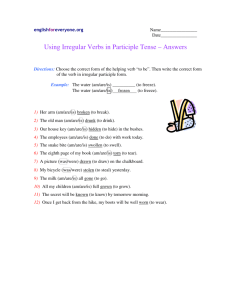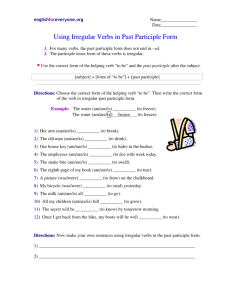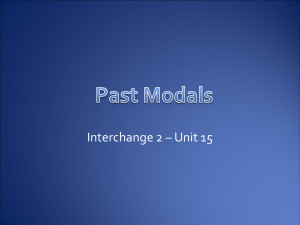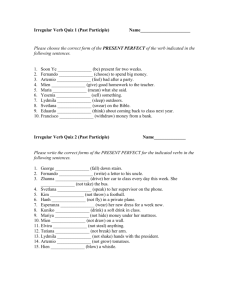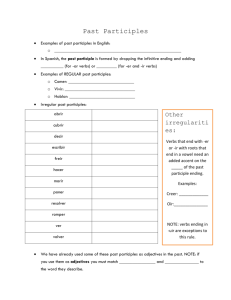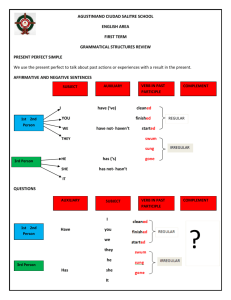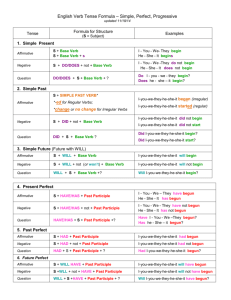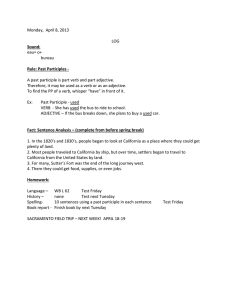Past modals with have + verb in past participle Some past modals
advertisement
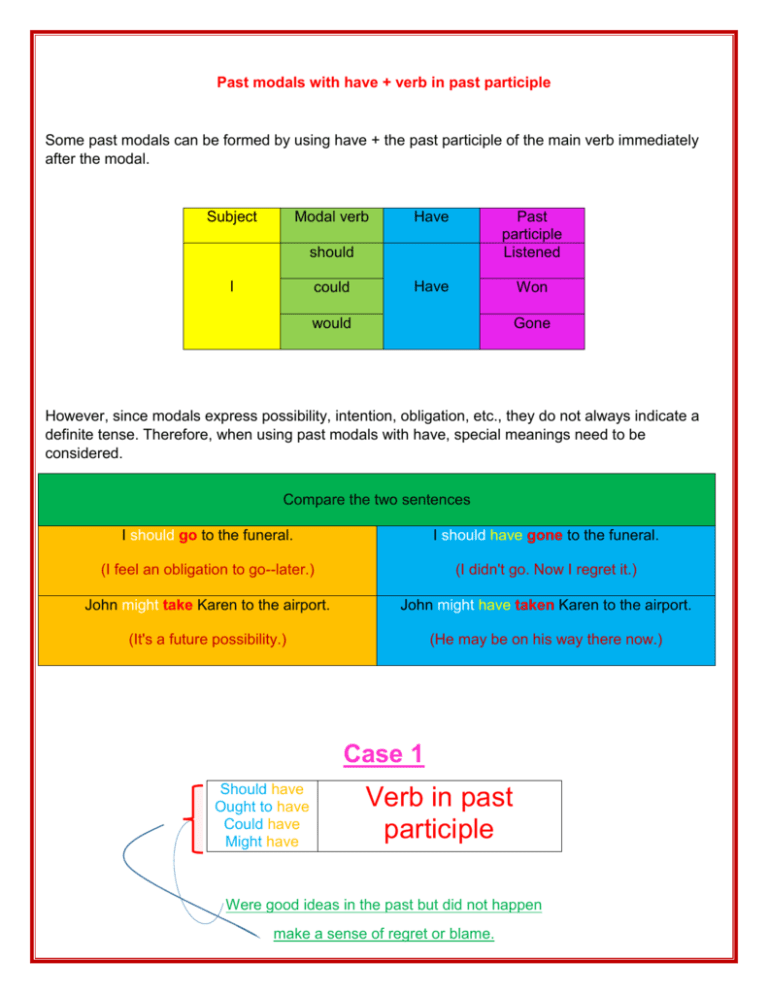
Past modals with have + verb in past participle Some past modals can be formed by using have + the past participle of the main verb immediately after the modal. Subject Modal verb Have Past participle Listened Have Won should I could would Gone However, since modals express possibility, intention, obligation, etc., they do not always indicate a definite tense. Therefore, when using past modals with have, special meanings need to be considered. Compare the two sentences I should go to the funeral. I should have gone to the funeral. (I feel an obligation to go--later.) (I didn't go. Now I regret it.) John might take Karen to the airport. John might have taken Karen to the airport. (It's a future possibility.) (He may be on his way there now.) Case 1 Should have Ought to have Could have Might have Verb in past participle Were good ideas in the past but did not happen make a sense of regret or blame. I should have called him You ought to have taken that job You might have asked for a raise She could have been a fitness coach by now. Case 2 May have Might have Could have Verb in past participle Speculation about a past situation; we think something was possible but we aren’t sure. Fact: he didn’t come to the meeting Speculation: he may have got into a traffic jam. Fact: she speaks very good Spanish. Speculation: she might have lived in Spain for some time. The thieves might have escaped by car but we can’t be sure. He should be here by now. He may have been delayed by a traffic jam or something. I can’t find my purse. I could have left it in the supermarket but I just don’t know. Case 3 Must have Had to have Verb in past participle We are almost sure about our conclusion. He must have traveled a lot. This event had to have influenced his profits. You must have been delighted when you heard you’d won the lottery. The thieves must have come in through the window. Look – it’s still open. Oh no! Where’s my car? Someone must have stolen it! Case 4 can’t have Verb in past participle We feel sure something didn’t happen in the past. I thought I saw John in town this morning but it can’t have been him,he’s in Greece this week. I can’t have left it in the supermarket, I had it on the bus on the way home. You can’t have read the instructions properly. They’re perfectly clear. Video: https://www.youtube.com/watch?v=IWLjWmgmgcE Practice: https://learnenglish.britishcouncil.org/en/grammar-reference/modals-deduction-past (ejercicios al final de la página) http://www.autoenglish.org/modalverbs/pastmodalsdeduction.htm http://www.tolearnenglish.com/exercises/exercise-english-2/exercise-english-53195.php (Digitar: verbo modal + have + verbo en pasado participio)
